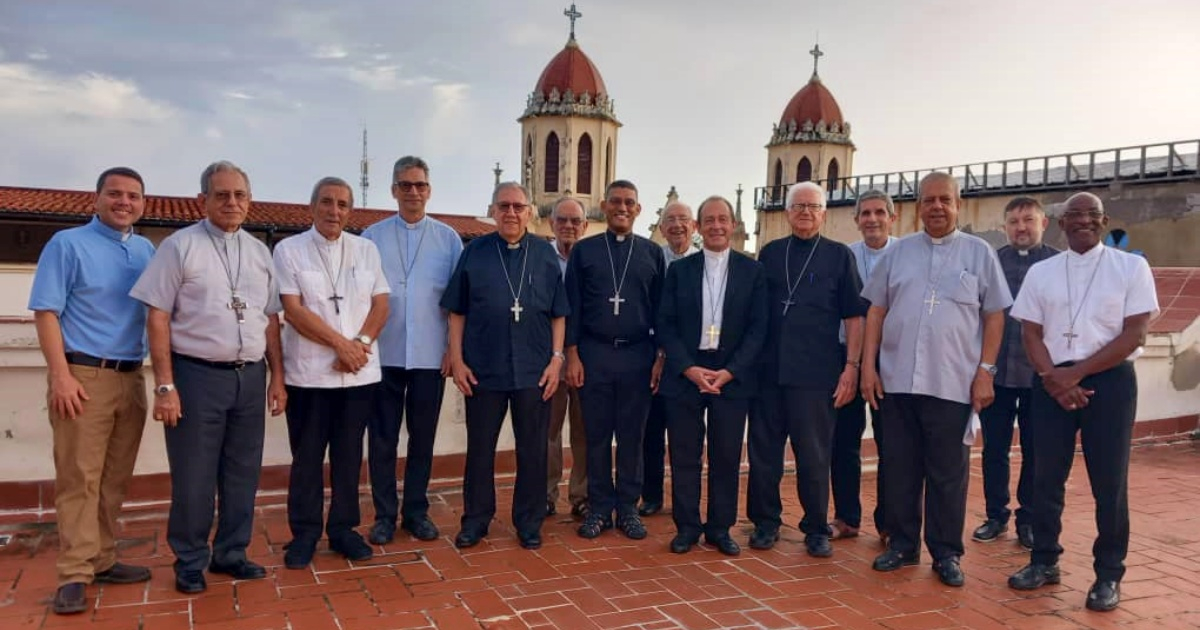In a powerful pastoral letter released on June 15, during the Solemnity of the Holy Trinity, Cuban Catholic bishops declared that urgent action is needed to "save Cuba" and restore hope to its people. Under the theme “Pilgrims of Hope,” this message comes in the framework of the Jubilee Year—a special period of grace, reflection, and spiritual renewal for the entire Catholic Church. However, the Cuban episcopate has issued a message that goes beyond prayer, demanding structural changes, genuine dialogue without exclusions, and sternly denouncing the daily suffering in the country.
“Without hope and joy, there is no future for any nation,” the bishops warned, urging courage and fearlessness in opening new paths. “Things are not well, we cannot continue this way, something must be done to save Cuba and give us back hope," the bishops stated, marking one of the most critical, courageous, and compassionate messages directed to the people in recent years.
Hope at the Heart of Change
The document revolves around a central truth: hope is weakened in Cuban society, and without it, no viable path exists for any people. Throughout the text, the bishops described a nation battered by economic erosion, emotional exhaustion, and social fracture.
“Many among us live in despair, trapped by uncertainty and confusion in the face of a dramatic present and an unclear future, as it seems we have lost the springs, dynamism, and will to change the harsh living conditions of the people,” they asserted.
Urgent Call to Action
This is not a message of defeat, they explained, but an urgent call to act and transform. “The painful and pressing reality we experience demands we do not remain solely in analyses, problem descriptions, and their many causes. It requires us to change the course of this situation,” they warned.
Daily Suffering and Social Fracture
In one of the document's most poignant sections, the bishops offered a vivid description of the daily anguish faced by millions of Cubans: “When daily life forces a frantic search for basic goods, the prolonged lack of electricity affects rest and paralyzes study and work; families grow more fragmented due to increasing emigration, and disenchantment and apathy take hold of many, burdened by the repetition of promises that never materialize… when all this invades our soul, the horizon of hope fades, and sadness grips our hearts.”
Building a Plural Future
Far from being a religious text, the bishops presented a political and social perspective loaded with ethical responsibility: “The time has come to create an atmosphere, free of internal and external pressures, where the necessary structural, social, economic, and political changes for Cuba can be carried out.”
Rejecting all forms of exclusion in national debate, the episcopate advocated for a plural Cuba where all viewpoints are welcome: “This concern has accompanied the repeated messages we, the Catholic Bishops of Cuba, have sent over the past decades, with the sole desire to serve the common good of the nation, encouraging respectful listening to all those who, loving the land of their birth, wish to contribute, with their skills and potential, to building a more prosperous, just, and happy nation.”
They added, “The diversity of viewpoints is a necessity and a richness when seeking the greatest interest of the nation, above particular interests.”
Dialogue, Dignity, and Trust in the People
The message did not shy away from responsibilities nor took refuge in neutrality, but called for courage, respect, and the will to engage: “With Pope Leo XIV, we want to build bridges and work for an environment of true peace that ‘demands a sincere will for dialogue, animated by the desire to meet rather than confront.’”
In this line, the Church declares itself “in communion with the Holy Father” and reaffirmed its commitment to “dialogue, respect for the dignity of every human being, and trust in the enormous possibilities of the Cuban people.”
Aware of their pastoral role, the bishops also called for intensified prayer for Cuba: “Today we renew this commitment, confident in the power of prayer, because ‘unless the Lord builds the house, the builders labor in vain’ (Psalm 127:1).”
The message concluded with an expression of faith and comfort that does not shy away from pain but confronts it with active confidence: “May [the Risen Christ and Our Lady of Charity] move our minds and wills, so that, setting aside resistance, distrust, and fear, we may be able to open for our people the bright and beautiful door of hope.”
The message has been well-received by thousands of citizens who have responded positively to this call for opening a path of hope for the Cuban people.
Cuban Bishops' Call for Change
What main message did the Cuban Catholic bishops convey?
The Cuban Catholic bishops emphasized the need for urgent action to save Cuba and restore hope to its people, highlighting the necessity for structural changes and genuine dialogue.
Why did the bishops focus on hope in their message?
The bishops focused on hope because they believe it is weakened in Cuban society, and without it, no viable future path exists for any nation.
How did the bishops describe the daily life of Cubans?
The bishops described daily life in Cuba as filled with despair, marked by basic goods scarcity, lack of electricity, family fragmentation due to emigration, and a pervasive sense of disenchantment and apathy.
